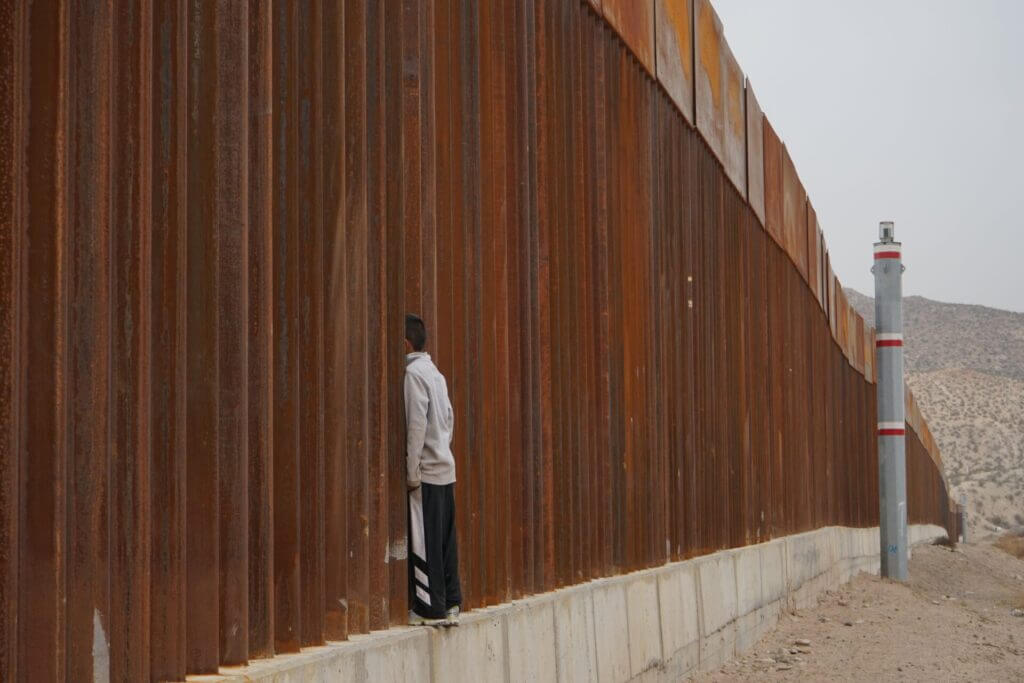Almost every time we talk about detentions or deportations we think of adults. Now, what happens if immigration catches a minor? Today, together with the professionals at Zava Immigration Law Group, we will look at what happens in a special case involving immigrant minors.
Every person has the right to contact a lawyer to defend and advise him/her. At Zava Immigration Law Group we can help you navigate the difficulties of the immigration system. Talk to an attorney today and get started on the road to a new life in the United States.
Table Of Contents
What is considered an “immigrant minor”?
“Immigrant minor” means a category that encompasses individuals under the age of 18 with at least one immigrant parent in the U.S. These include:
- Children of immigrants under 18 years of age.
- Foreign-born citizens under 18 years of age.
- Permanent residents with Green Card under 18 years of age.
- Nonimmigrant visa holders (F-1, B-2) under 18 years of age.
- Minors under 18 years of age with refugee or asylum status in the country.

What is considered an “Unaccompanied Immigrant Minor”?
According to the National Immigration Act, “Unaccompanied Immigrant Children” (UAC) are considered to be any minor who meets the following requirements:
- Not having legal status in the United States.
- Be under 18 years of age.
- Have no mother, father or legal guardian in the United States.
- Have no mother, father or legal guardian available to provide care and physical custody.
What happens if immigration catches a minor?
When immigration authorities (in this case DHS) detain a minor, he or she is considered an “unaccompanied immigrant minor”. They are immediately taken into the custody of Customs and Border Protection (CBP) and then transferred to the Office of Refugee Resettlement (ORR).

Unaccompanied immigrant children remain in ORR shelters until they are released to their relatives or sponsors in the country. In addition, in these centers, they will be entitled to receive:
- Food.
- Medical care.
- Entertainment.
- Education.
- Legal representation
- Clothing.
- Dental care.
- Communication with your relatives in the U.S. (if you have them) and assistance in reuniting with them.
What is the detention process for an unaccompanied immigrant minor like?
The detention process of an unaccompanied immigrant minor can be summarized in the following stages:
- Border Patrol Detention: When a minor crosses the border unaccompanied, the Border Patrol detains the minor.
- Release to the Office of Refugee Resettlement (ORR): Border Patrol releases the child to ORR, part of the Department of Health and Human Services (HHS).
- Custody and Care: ORR assumes custody of the child and is responsible for the child’s care while the child’s legal status and permanent placement is being determined.
- Case evaluation: An evaluation is conducted to determine if the child qualifies for asylum, refugee or other immigration benefits.
- Placement in shelters: Pending resolution of the case, the minor resides in ORR shelters.
- Legal Process: You are assigned an attorney or legal representation is sought for your case. The minor may appear before the immigration court to resolve his or her immigration status.
- Destination Determination: Once your case is resolved, a determination is made as to whether the child can remain in the U.S., be reunited with family members, or be sent back to his or her home country.
Usually, minors in this situation face the complexity of detention after fleeing violence in their home countries. Therefore, it is extremely important to seek quality legal assistance in order to find their responsible parents or guardians. At Zava Immigration Law Group we can help you. Contact us and get the quality legal help you deserve.
How is the process of deportation of a minor?
The deportation process of an immigrant minor in the United States can be summarized as follows:
Step 1: Deportation Order
An immigration judge issues a deportation order if the child does not qualify for immigration status or legal benefits, such as asylum or special visas. Legal remedies may be filed to appeal the order.
Step 2: Transfer to detention facilities
The minor may eventually be transferred to immigration detention facilities while his or her departure from the country is being prepared. During this time, legal options can be explored to stop the deportation.
Step 3: Coordination with the authorities of the country of origin
Contact is made with the authorities in the child’s country of origin to arrange for repatriation. The necessary forms and documents for repatriation are completed.
Step 4: Accompaniment and Reintegration in the home country
Depending on the child’s age and circumstances, he or she may be accompanied during the deportation process by immigration agents or specialized personnel. Once in the country of origin, the aim is to ensure the child’s reintegration, guaranteeing his or her safety and well-being.
Please note that the process varies depending on the individual circumstances of the case. For this reason, having the help of an immigration attorney is essential. Do not face deportation proceedings on your own. Speak to one of our lawyers today and secure your stay in the country you have chosen as your home.
What immigration benefits are available to migrant minors?
Certain immigration benefits are specifically designed for immigrant minors in the United States:
- Access to asylum: Minors may seek asylum if they have suffered persecution or fear persecution in their home country because of their race, religion, nationality, political opinion, or membership in a particular social group.
- Special visa for abused, neglected or abandoned minors: Some minors may be eligible for a special visa if they have been victims of certain crimes and have cooperated with the authorities. Some of these visas are:
- Temporary Protected Status (TPS): In certain cases, minors and their families may be eligible for TPS if they come from countries affected by natural disasters, armed conflict or other temporary hazardous conditions.
- Family reunification programs: Minors may benefit from programs that facilitate reunification with family members legally present in the United States. They may even be able to initiate the adjustment of status process if they have a U.S. citizen or resident relative.
These benefits can be a good opportunity for children in vulnerable situations. However, the process to get them can be overwhelming. This is why having an experienced immigration attorney is essential. Don’t be frustrated by the difficulties of the system. Tell us your case today and let’s work together to protect your rights.
Cancellation of deportation for minor migrants
As we have seen, even if immigrant minors have some protection from ORR, they usually face removal proceedings. However, they can obtain cancellation of removal either through other immigration remedies or through an appeal before an immigration judge.
For all of this, the help of an immigration attorney is essential to support and guide you through this tough process. At Zava Immigration Law Group we are here to help you through difficult times like this, accompanying you through every step of the immigration process. Contact our lawyers and let’s fight together for your right to a better life.
Sources
USCIS – Child Status Protection Act
UNICEF – Child and adolescent migration
Other Resources
How to Apply for Cancellation of Removal, Step by Step
Cancellation of Deportation with Form EOIR 42B
How to deal with a deportation order in the United States
Deportation In The United States: Exploring The Most Important Causes
Applying for Defensive Asylum in the U.S., The Complete Guide
Starting Over: How to Regain Your Immigration Status After Deportation






